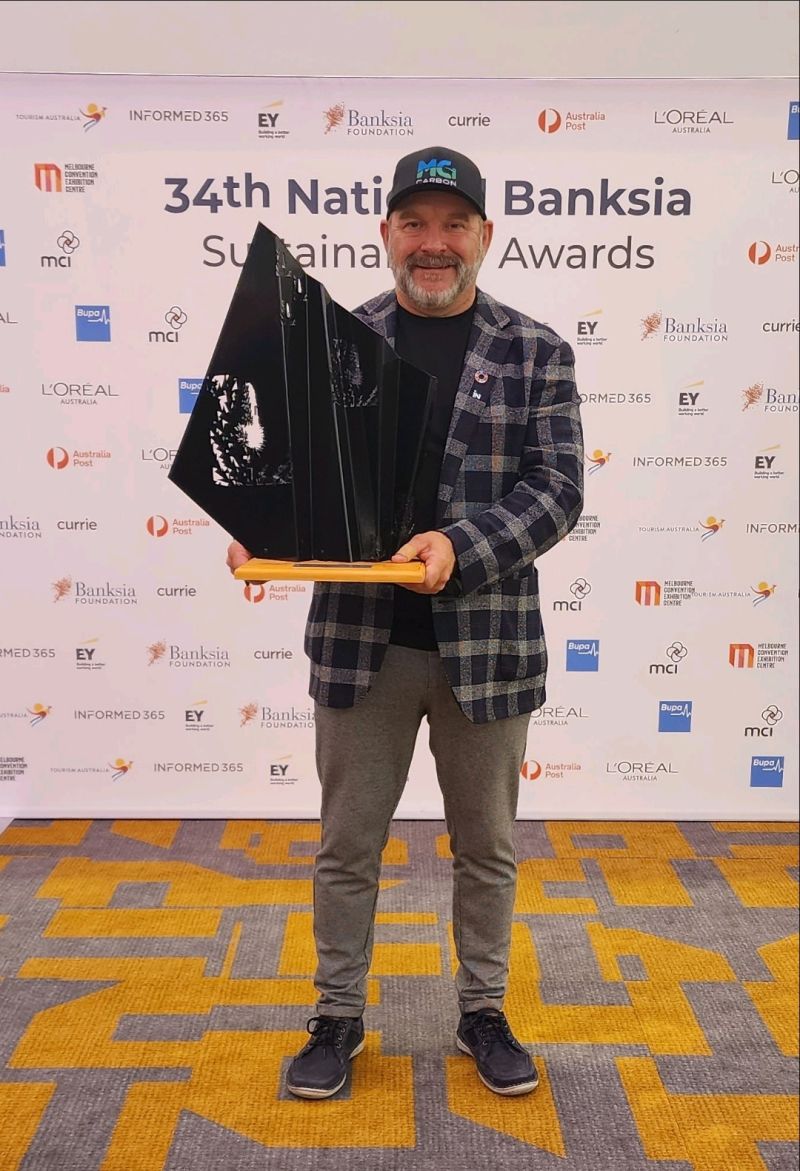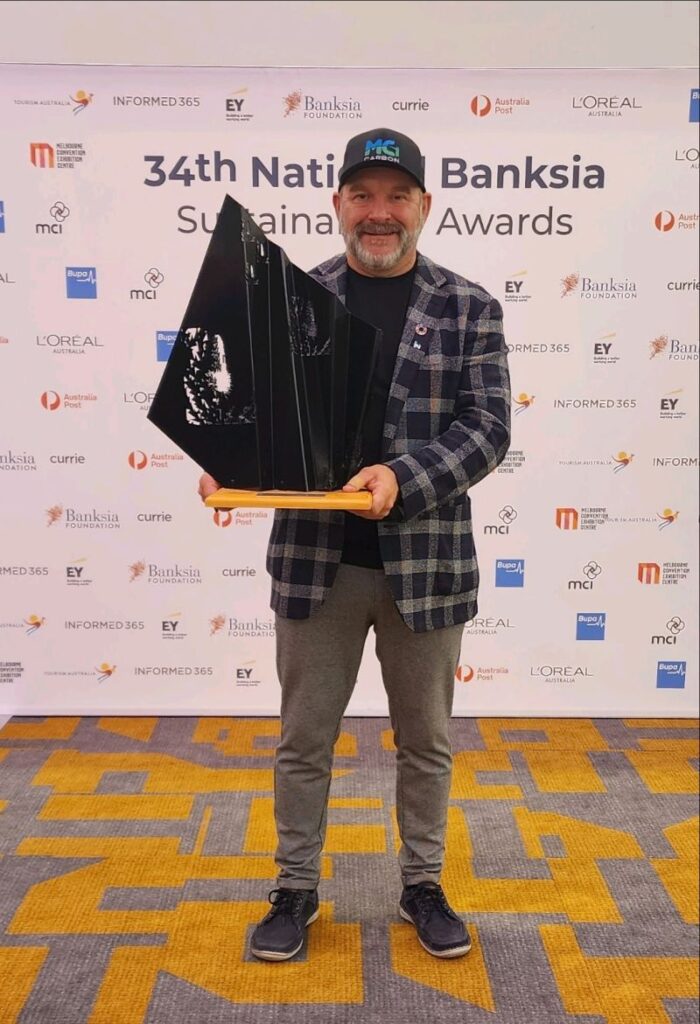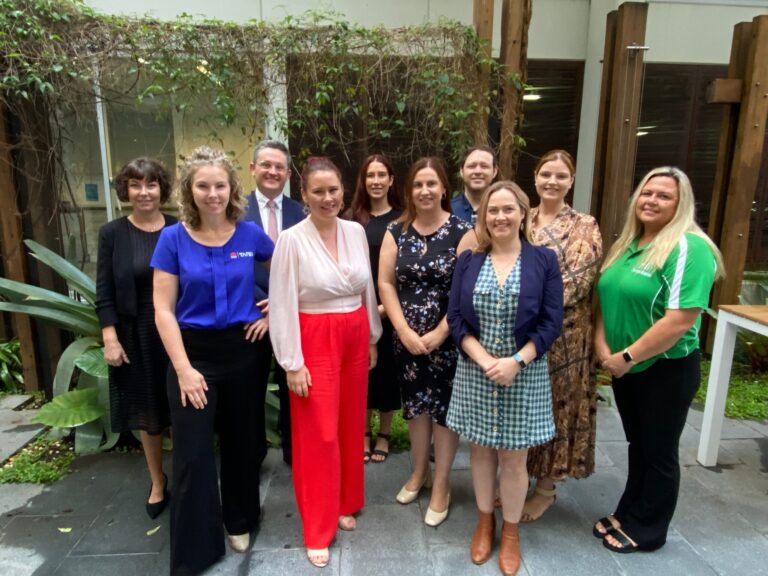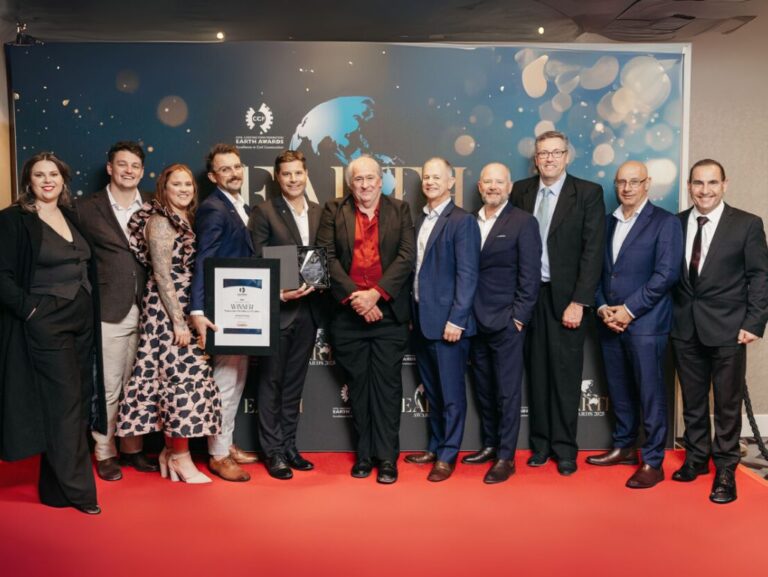MCi Carbon has been announced as a winner by The Banksia Foundation at the 34th National Banksia Sustainability Awards.
The awards recognise the chemical engineering breakthroughs achieved at their Pilot Plant Facility in Newcastle to decarbonise global industries and seek out and recognise innovation and leadership through the lens of the United Nation’s Sustainable Development Goals (SDGs).
The winners and finalists, drawn from a record number of entries, demonstrate optimism and hope for a brighter future despite fears of an economic downturn.
MCi Carbon captures emissions from global industries, like steel, cement, fertilisers, and mining, unlocking the value of carbon by creating valuable inputs into building materials and other products, and diverting emissions that would otherwise go into the atmosphere.
The chemical process, called mineral carbonation, creates a range of products, including calcium and magnesium carbonates and amorphous silica, by reacting CO2 with minerals in by-products of industrial processes, such as steel slag and mine tailings.
CEO of MCi Carbon, Marcus Dawe thanked the Banksia Foundation for the recognition of MCi Carbon as a national leader in sustainable and circular thinking.
“This award gives further credence to MCi Carbon’s technology solutions and business models,” Marcus said.
“The transition will require 1,000 companies like ours, and every lever needs to be pulled to decarbonise supply chains and reduce emissions now.”
The company has grown exponentially in recent years, following the award of a $14.6m Australian Federal government grant in 2021 to build a world-first demonstration plant at Kooragang Island’s manufacturing site in Newcastle, using mineral carbonation to prevent emissions from entering the atmosphere.
In February 2023, MCi announced a multi-million dollar investment from RHI Magnesita, the world’s leader in refractories products, and signed up the Austrian company as its first global commercial customer.
Banksia Foundation’s CEO, Graz van Egmond said that they can’t be subject to pessimism when it comes to sustainability issues.
“People need to hear our sustainability success stories,” Graz said.
“These are Australia’s brightest leaders, changemakers and innovators who are making a positive impact on the world.”
The company has grown exponentially in recent years, following the award of a 14.6 million dollar Australian Federal government grant to build a world-first demonstration plant at Orica Kooragang Island manufacturing site in Newcastle, using mineral carbonation to prevent emissions from entering the atmosphere.
Recently, MCi Carbon announced RHI Magnesita, the world’s leading manufacturer of refractory materials, as its first global commercial customer.
The Banksia Foundation has earned the reputation as the most prestigious sustainability awards in Australia and the longest-running sustainability award in the world.
“The finalists, drawn from a record number of entries, demonstrate optimism and hope for a brighter future despite fears of an economic downturn,” Banksia Foundation CEO, Graz van Egmond said.
“We can’t be subject to pessimism.
People need to hear our sustainability success stories. These are Australia’s brightest leaders, changemakers and innovators who are making a positive impact on the world.”
Reflecting the popularity to conserve, protect and restore Australia’s ecosystems, the Biodiversity, Circular Transition and Net Zero categories received the most entries for the Banksia Awards.
“Given Australia’s commitment to protecting 30 per cent of the Earth by 2030, it’s fantastic to see our finalists’ accelerating efforts and acting with the sense of urgency required to regenerate the environment.”
MCi Carbon’s semi-continuous research Pilot Plant is one of the first of its kind in the world and is where the team conducts intensive industrial programs to refine the patented mineral carbonation process, deliver customer projects, and generate low-carbon materials for product testing.
Last year, MCi was awarded the prestigious NSW Clean Technology Award, presented by the Banksia Foundation.
Located at the University of Newcastle’s NIER facility, the plant reacts industrial emissions with feedstocks, such as low-grade minerals, creating both carbonates and silica by-products for use in building materials, such as concretes and plasterboards, demonstrating the potential to create value from CO2.
IMAGE |MCI Carbon’s CEO, Marcus Dawe







